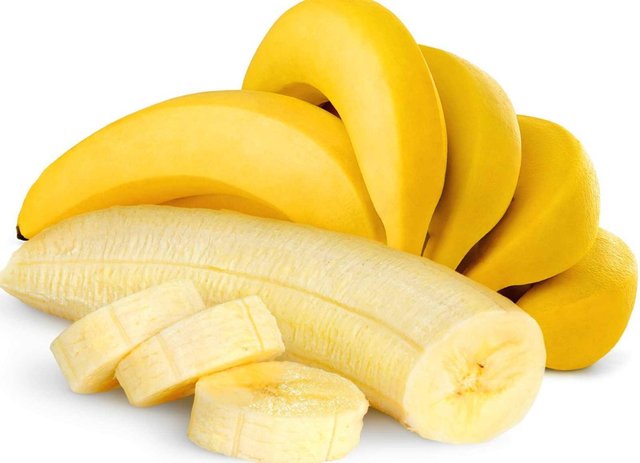Health benefits of bananas with scientific facts

Bananas are very healthy and delicious. They contain important essential nutrients, and have benefits for digestion, weight loss, and heart health. It is a convenient snack food .
Here are 10 health benefits of bananas that are supported by scientific research

- They contain important nutrients:
Bananas are basically among the most popular fruits on earth. They are grown in so many warmer parts of the world. There are many types of bananas and they vary in size, shape, and color. But the most common type is the yellow banana which is green when unripe.
Banana contains:
potassium- 9% of the RDI
Vitamin B6- 33% of the RDI
Magnesium- 8% of the RDI
Copper- 10% of the RDI
Manganese- 14% of the RDI
Net carbs- 24 grams
Fiber- 3.1 grams
Protein- 1.3 grams
Fat- 0.4 grams
A single banana contains only 105 calories, and it contains a lot of water and carbs. Banana contains little protein and almost no fat. The carbs in unripe bananas are starch, but when ripened it turns to sugar(glucose, fructose, and sucrose).
Bananas contain nutrients that moderate blood sugar levels:
Bananas are rich in fiber called pectin, and this gives the flesh its structural form. Both pectin and resistant starch may moderate blood sugar levels after meals, and reduce appetite by slowing down stomach emptying. This means, after your meal, try eating banana cause this will make your stomach empty slowly before your next meal.
The glycemic value of unripe banana is about 30, and ripe bananas rank at about 60.Bananas improves digestive health:
They contain mainly two types of fiber-
Pectin- Decreases as banana ripens
Resistant starch- Found in unripe bananas
Some cell studies propose that pectin may help protect against colon cancer.Bananas help with weight loss:
There has been no test on whether banana affects weight loss or not, but they contain relatively few calories. An average banana contains over 100 calories. In other words, bananas are low in calories, high in nutrients and fiber, and may have appetite-reducing effects.Bananas support heart health:
They are a good dietary source of potassium and magnesium, which are good nutrients for essential heart health.Bananas contain powerful antioxidants:
They contain several types of potent antioxidant, including dopamine and catechins. These antioxidants have been linked to health benefits such as, reduced risk of heart disease and degenerative diseases.Unripe bananas may improve insulin sensitivity:
Insulin resistance is a major risk factor for many of the world's most serious diseases. Studies have shown that 15-30 grams of resistant starch per day may improve insulin sensitivity by 33-50%, in as little as 4 weeks. But, not all studies agree on the matter.Bananas may improve kidney health:
Banana has potassium and this is essential for maintaining healthy kidney. A study was taken on women and it showed that over 13 years, those who ate bananas 2-3 times per week, had 33% less likeliness to develop kidney disease; also if eaten 4-6 times per week the chances are almost 50%, compared to those who don't eat bananas.Bananas have benefits for exercise:
Bananas are perfect food for athletes, because of their mineral content and easily digested carbs. Eating bananas help to reduce exercise-related muscle cramps and soreness, which affects basically up to 95% of the general population.
Bananas are said to provide excellent nutrition before, during, and after endurance exercise.Bananas are easy to add to your diet:
Bananas are convenient snack food, easy to eat and digest. They make a great addition to yogurt, cereal or smoothie. Bananas rarely contain any pesticides or pollutants, due to their thick protective peel.Definition of terms.
1 Antioxidants- These are substances such as vitamin "C" or "E" that removes potentially damaging oxidizing agents in a living organism.
2 RDI- Also known as Recommended Dietary Intake or Recommended Daily intake. It is the average daily intake level of a particular nutrient that is likely to meet the nutrient requirements of 97-98% of healthy individuals in a particular life stage or gender group.
3 Grams- This is a metric system unit of mass.
4 Calories- This is a unit of energy.
5 Carbs- This is a short word for carbohydrate. It is any of a large group of organic compounds occurring in foods and living tissues and including sugars, starch, and cellulose.
6 Pectin- This is a soluble gelatinous polysaccharide which is present in ripe fruits and is used as a setting agent in jams and jellies.
7 Glycemic- This is a relative ranking of carbohydrate in foods according to how they affect blood glucose levels.
8 Fiber- This is a natural or synthetic substance that is significantly longer than it is wide. It refers to carbohydrates that cannot be digested.
9 Dopamine- A compound present in the body as a neurotransmitter and a precursor of other substances including adrenaline.
10 Catechins- It is a type of natural phenol and antioxidant.
11 Insulin- This is a hormone that is important for metabolism and utilization of energy from the ingested nutrients- especially glucose.
Pictures of myself in front of a banana plantation.



Thank you for taking your time to read this post, I hope it was educative enough. Remember to upvote and resteem(if necessary).